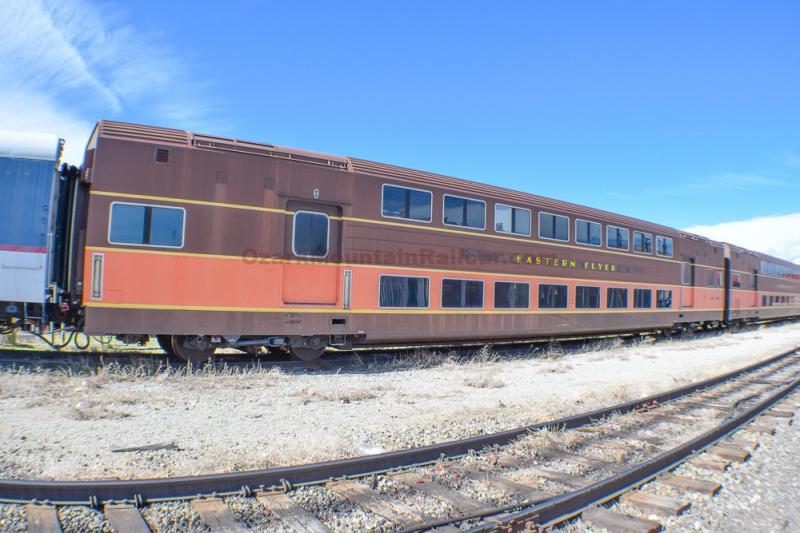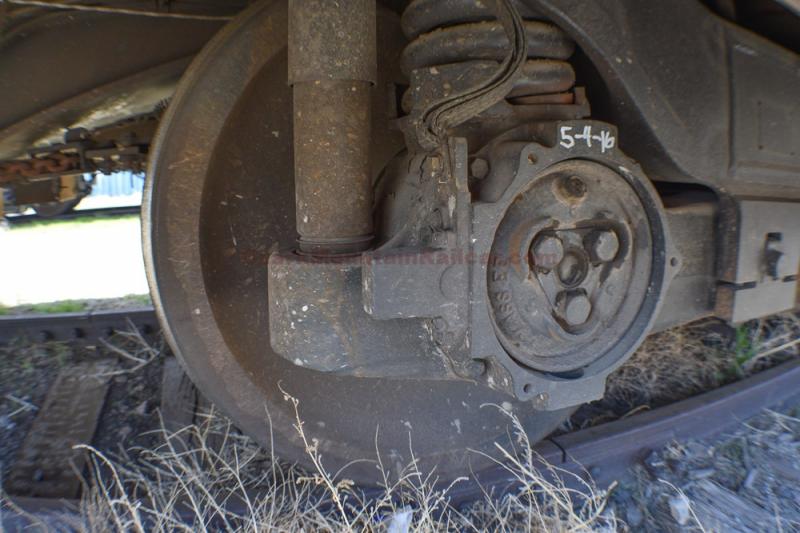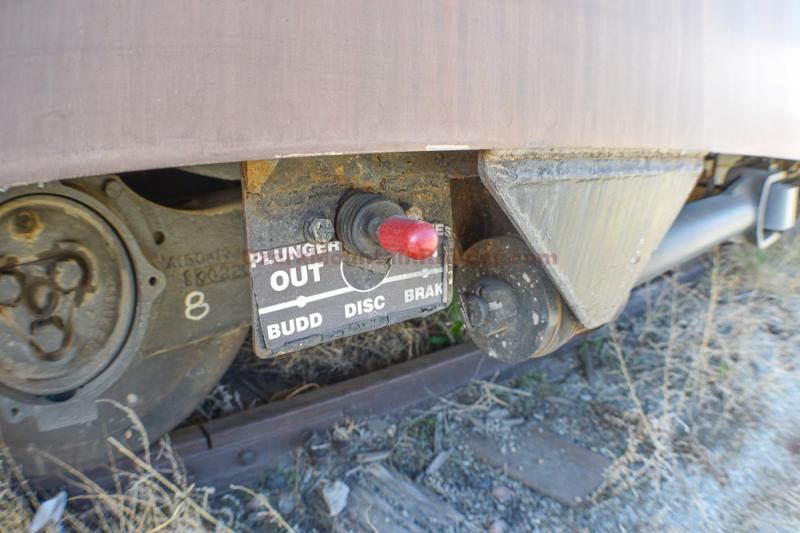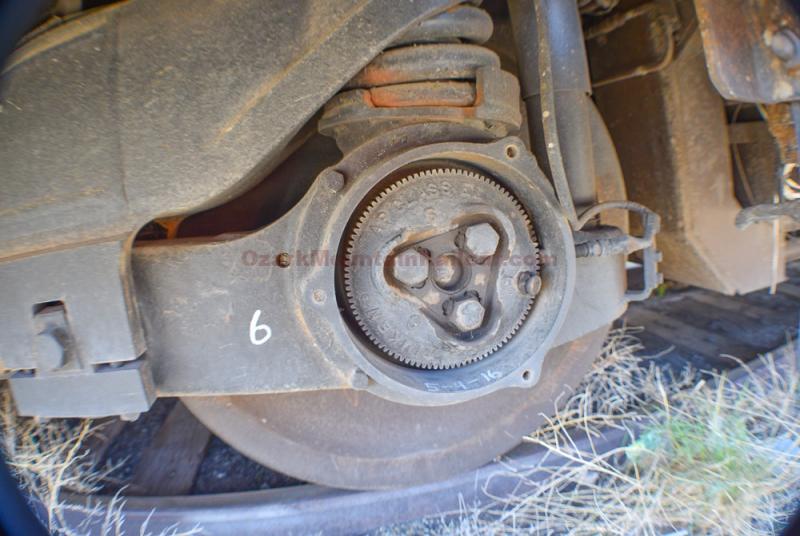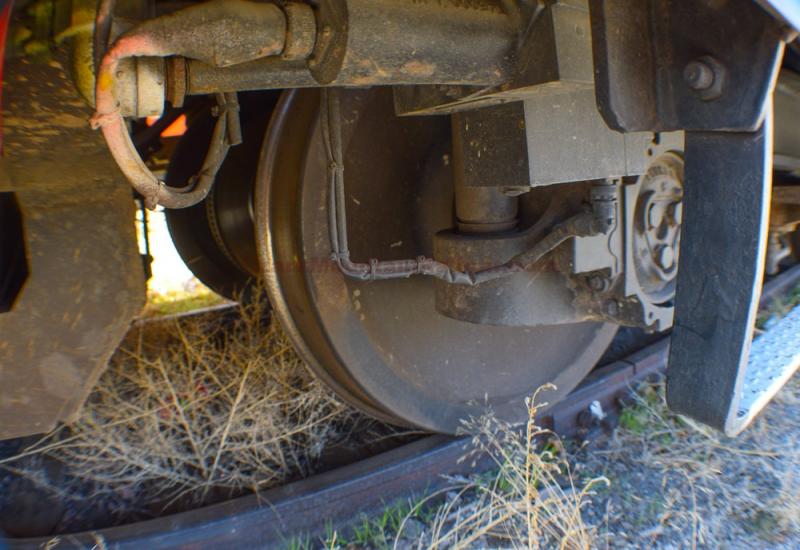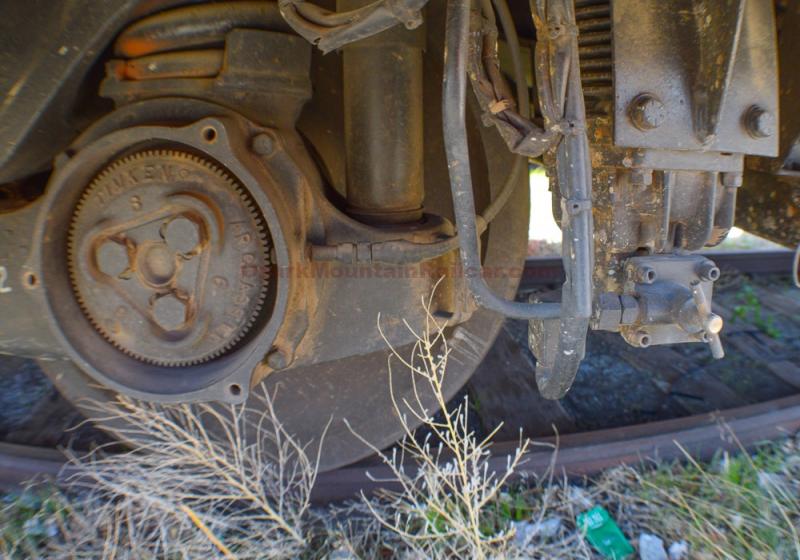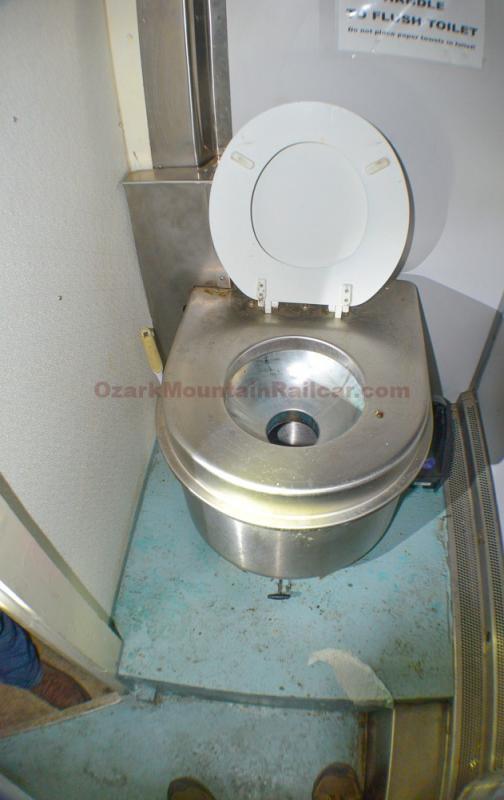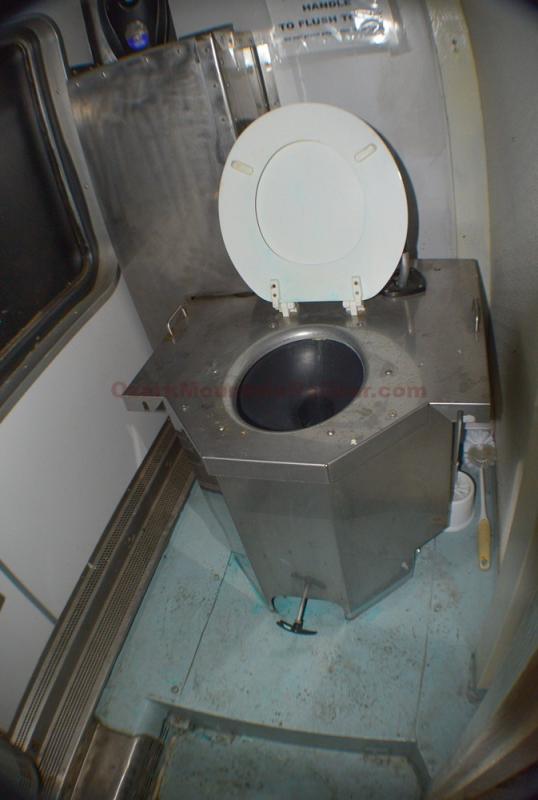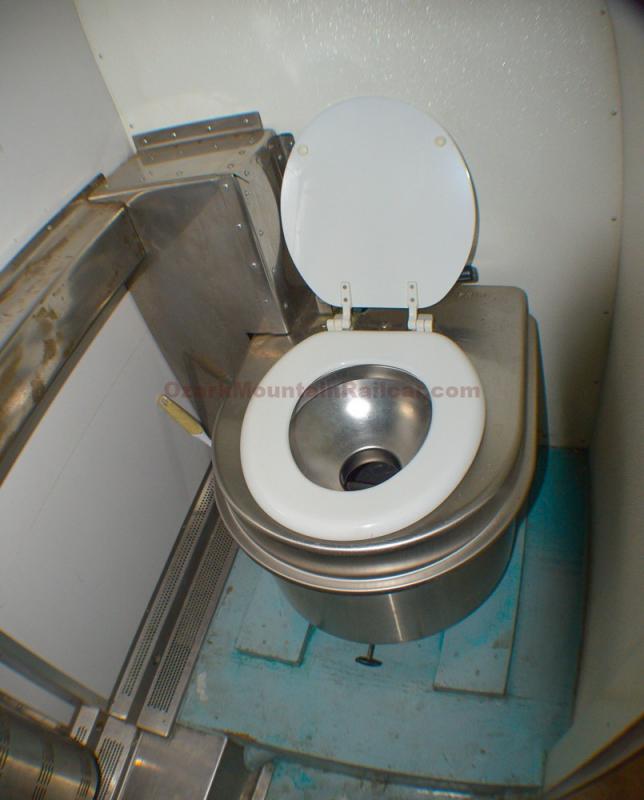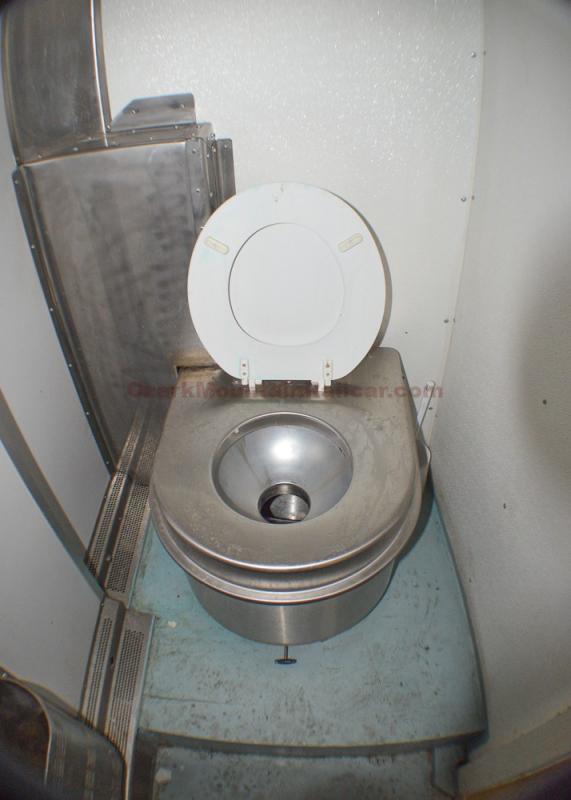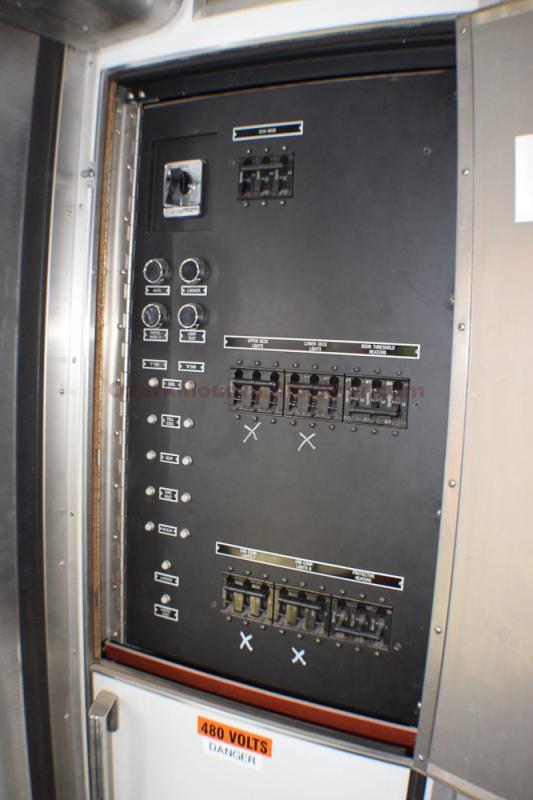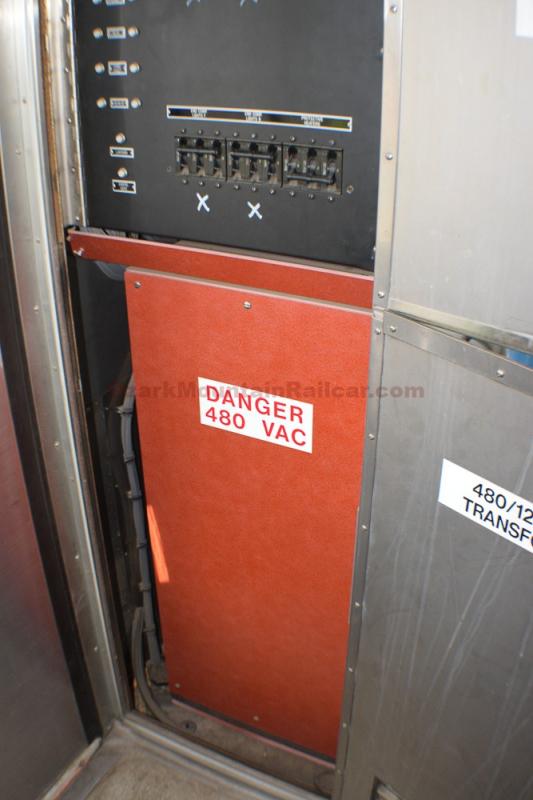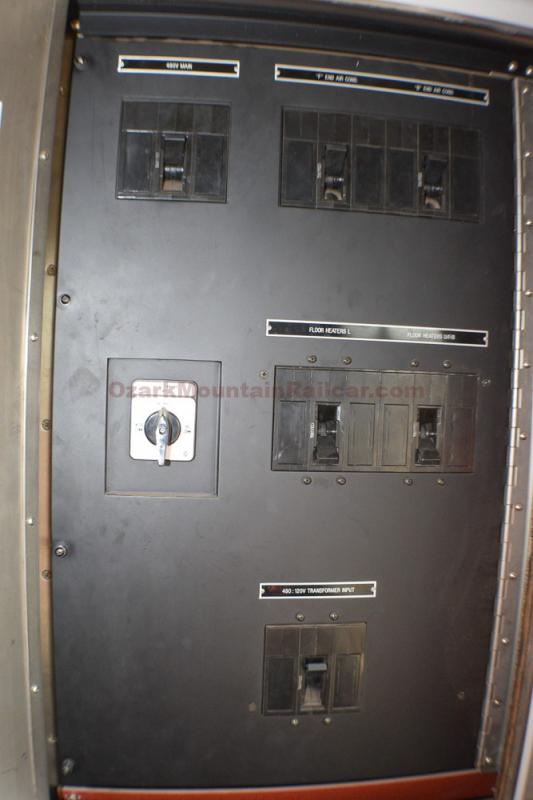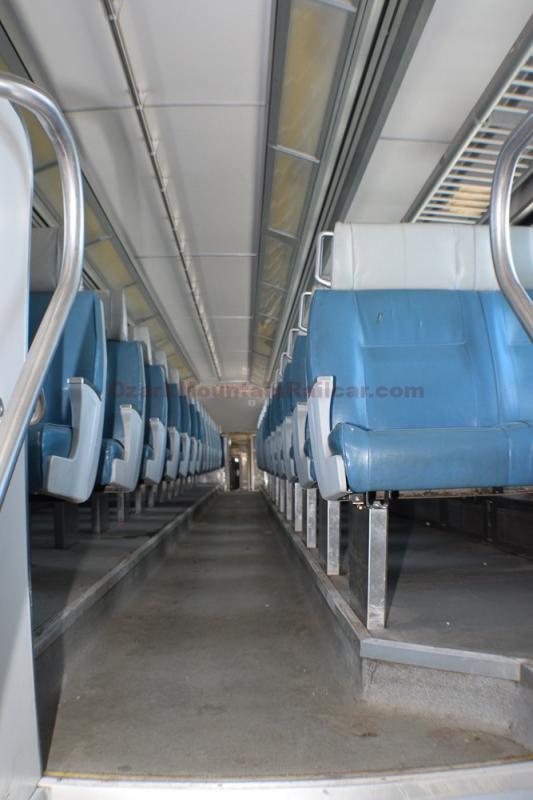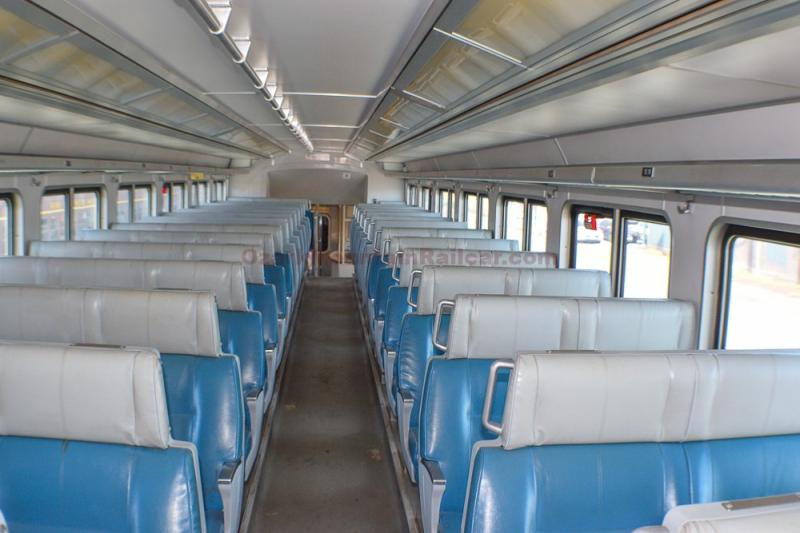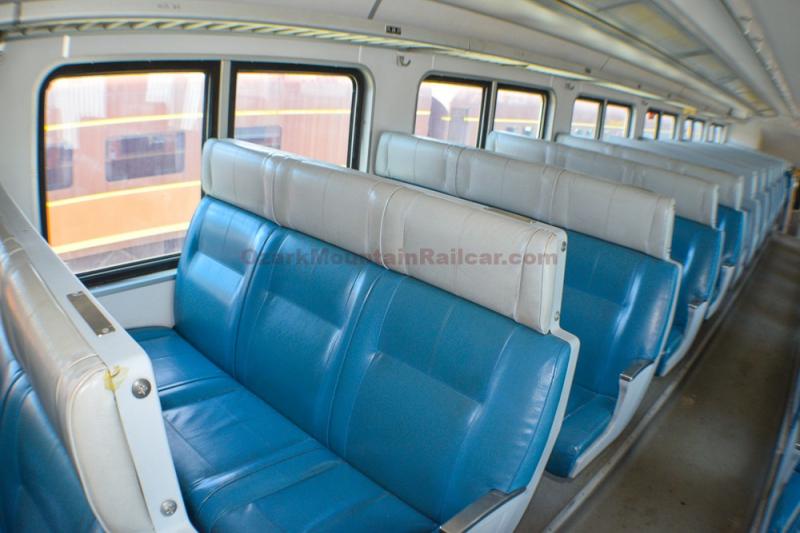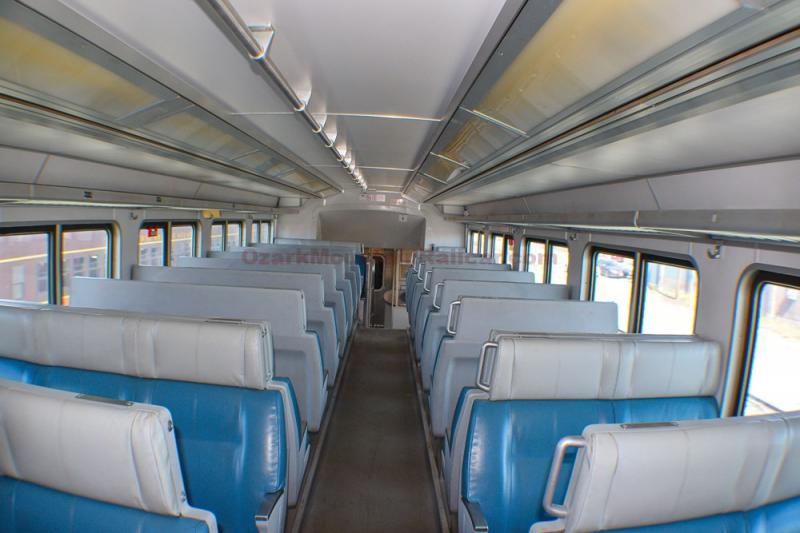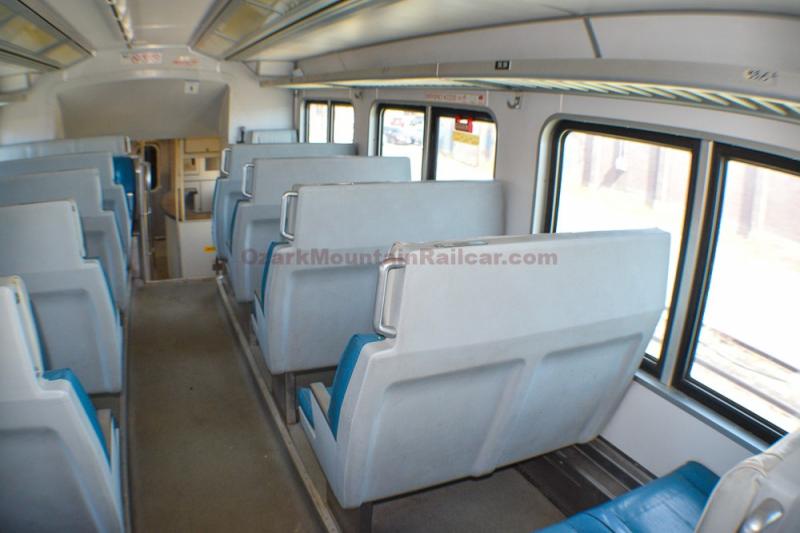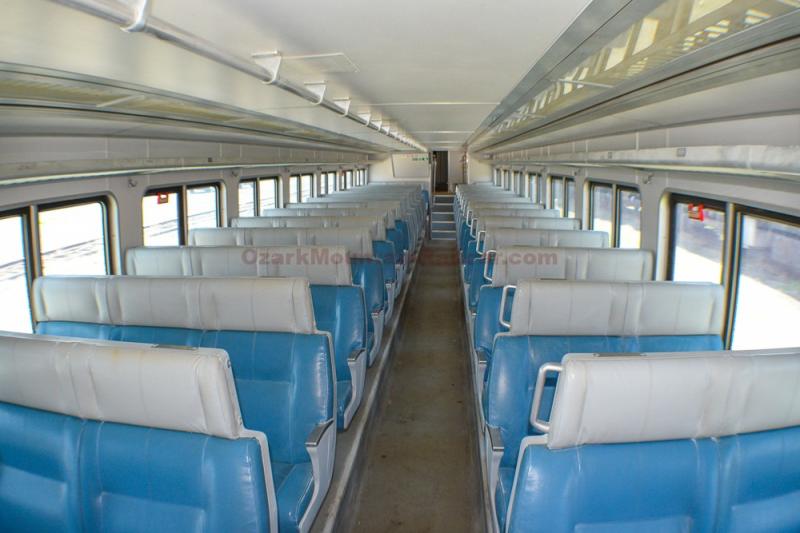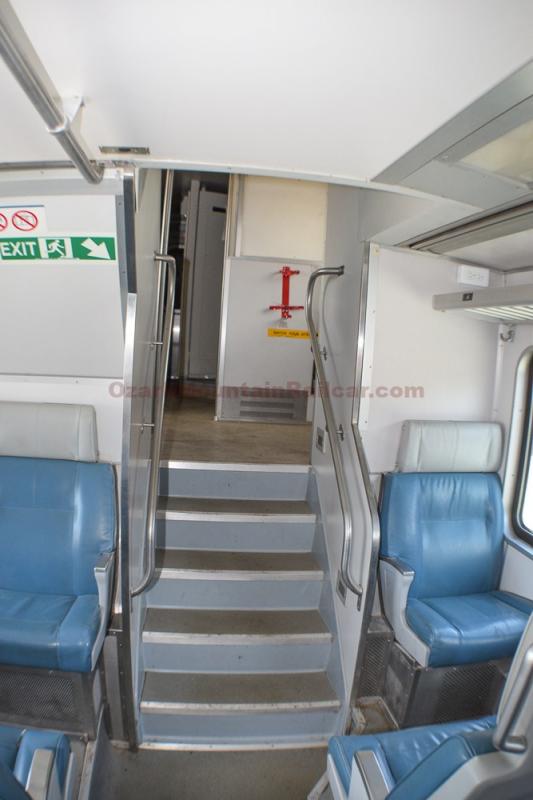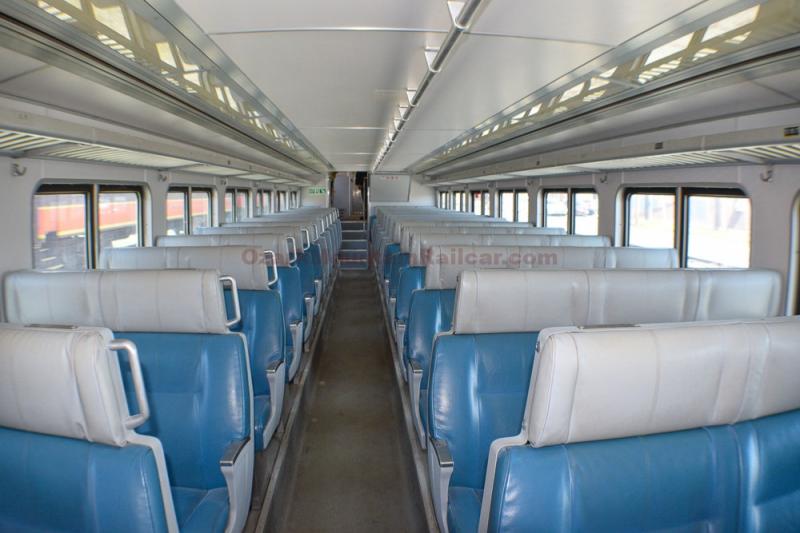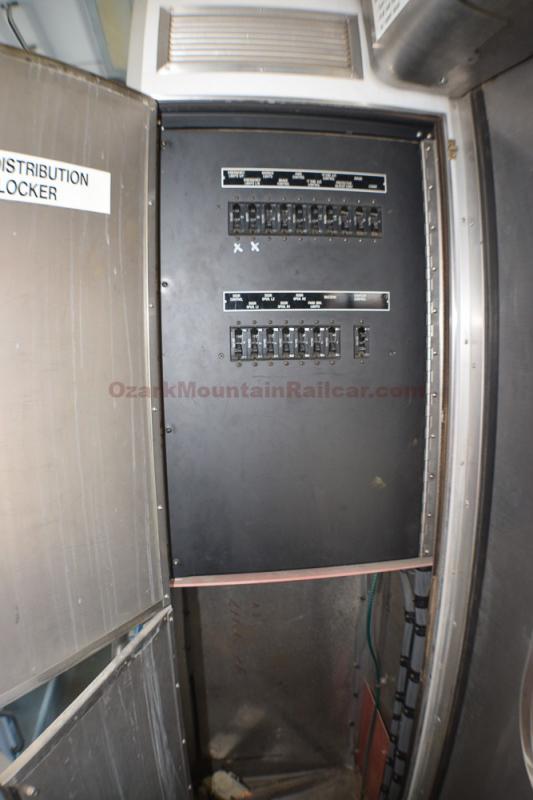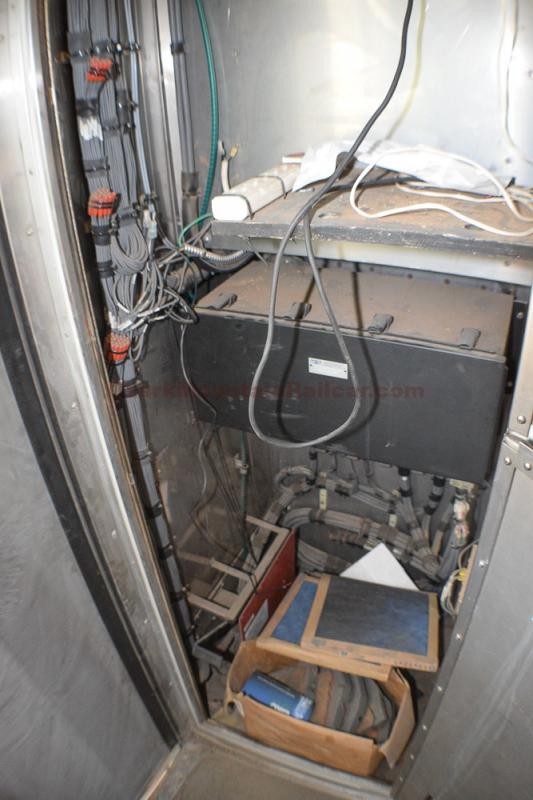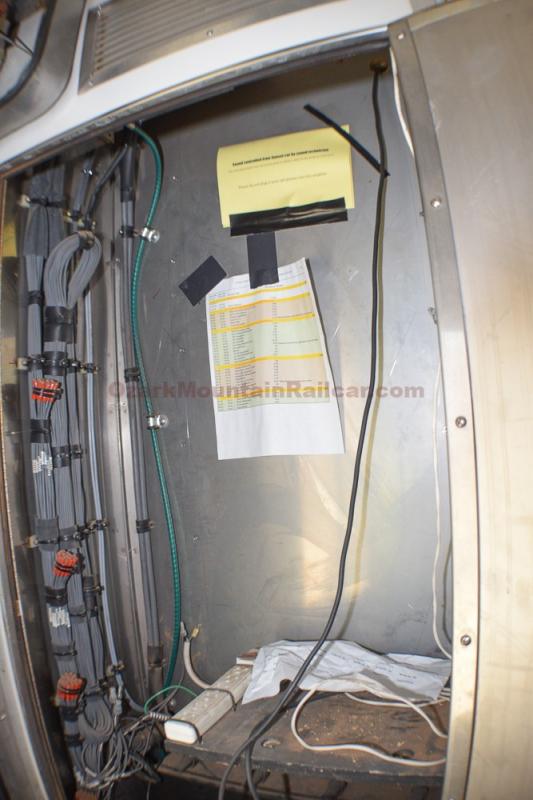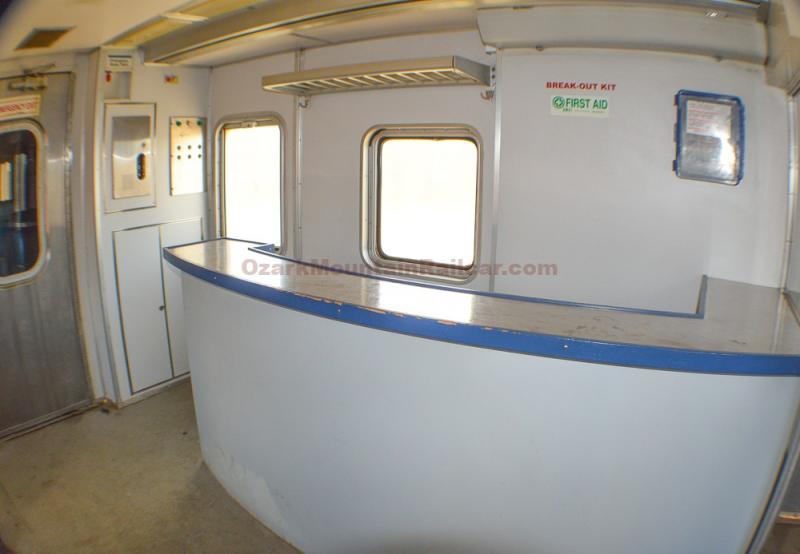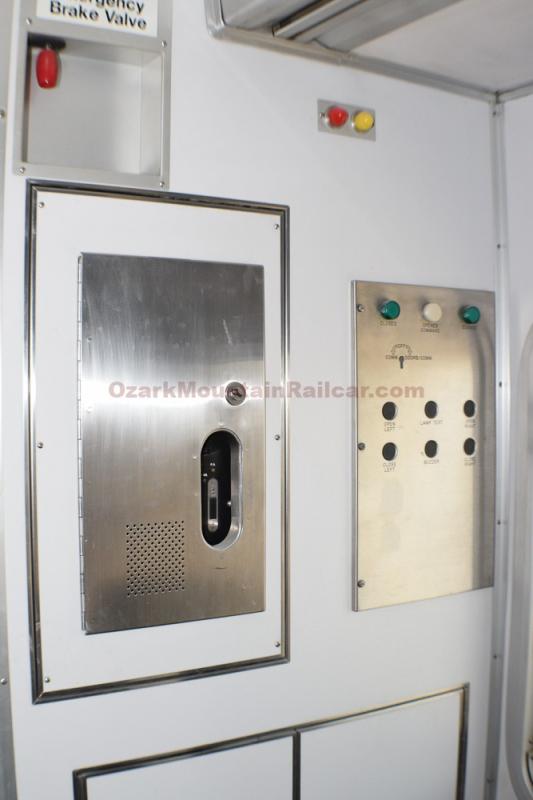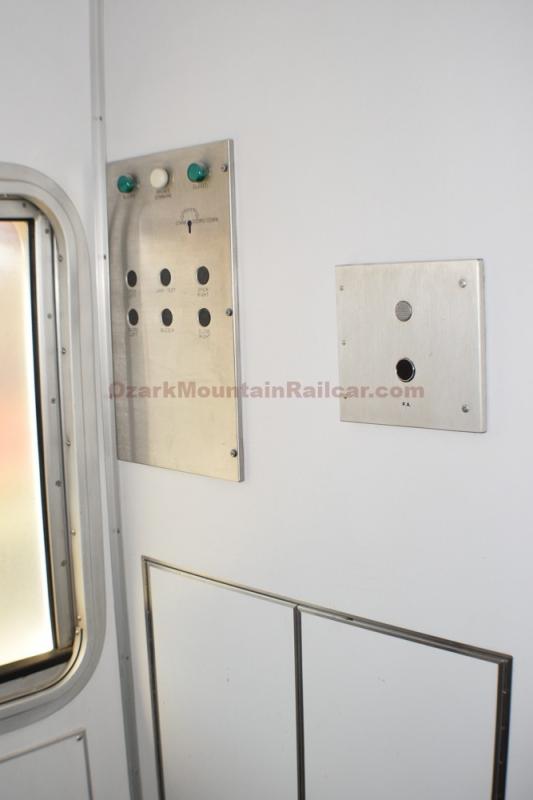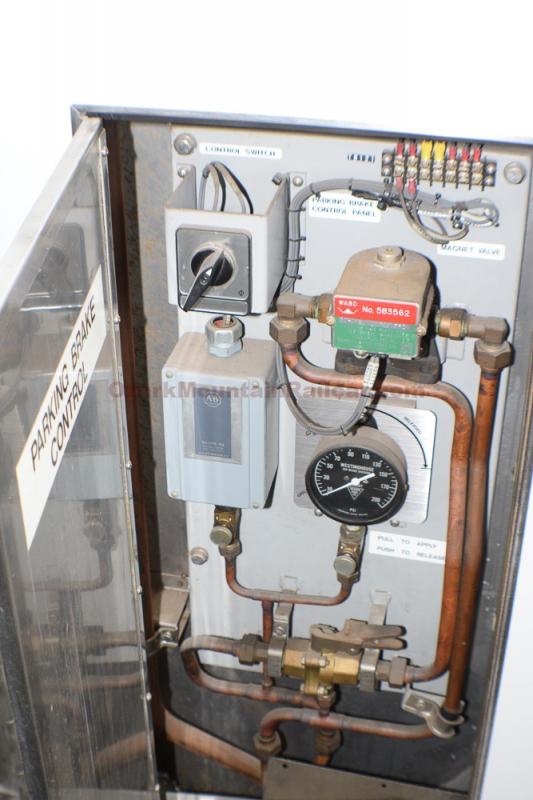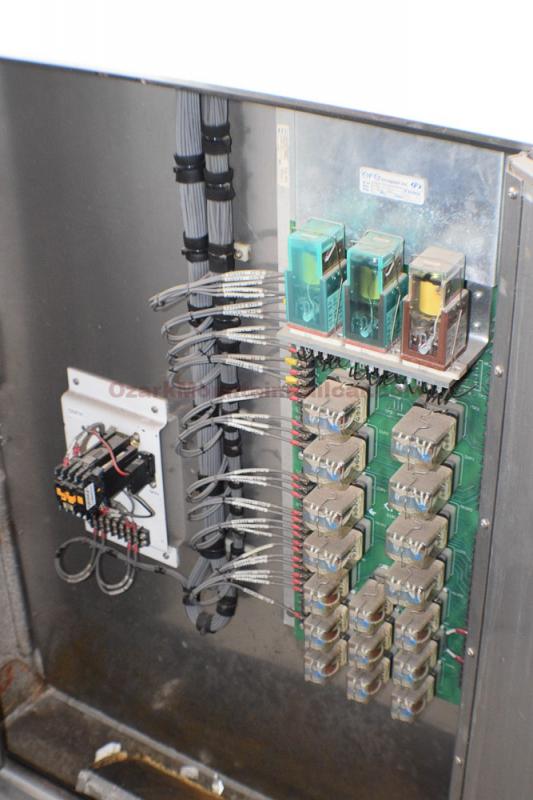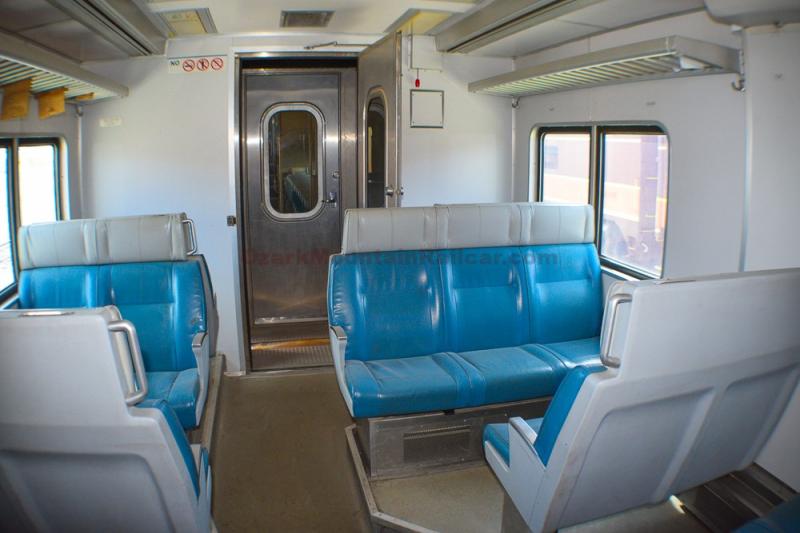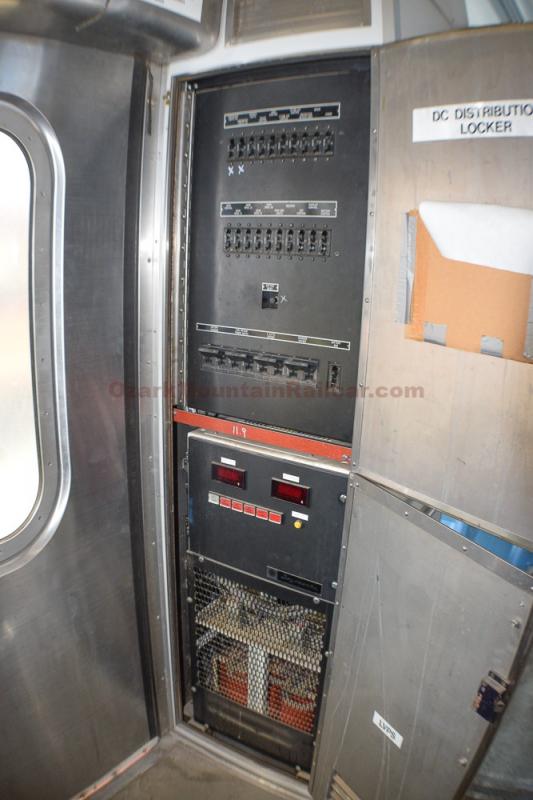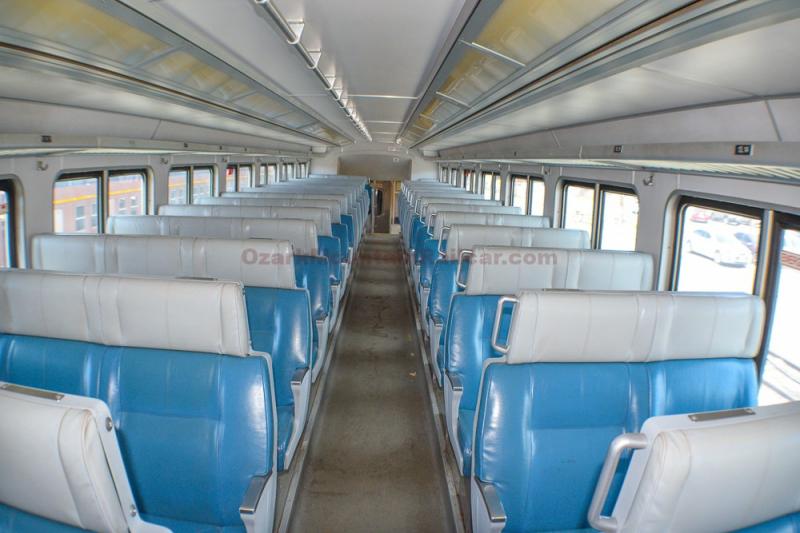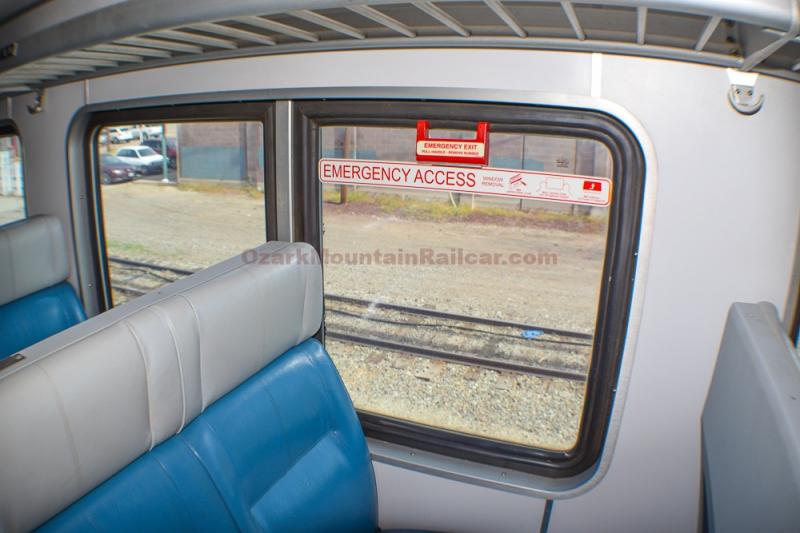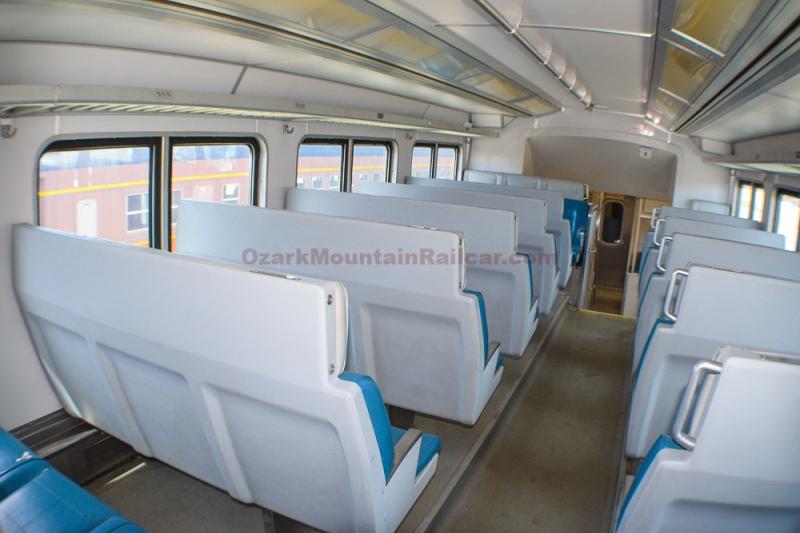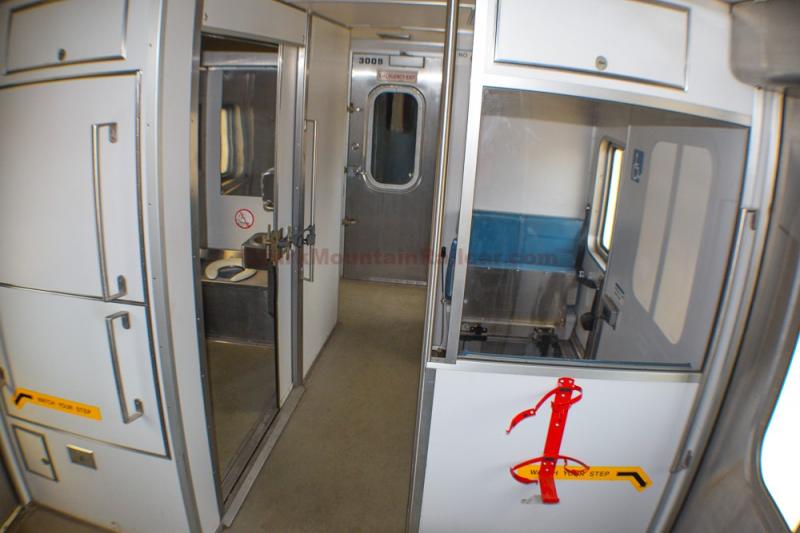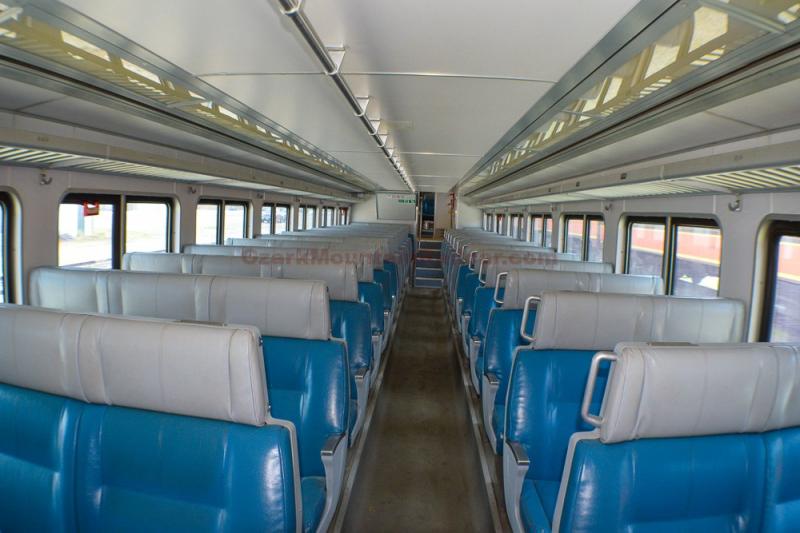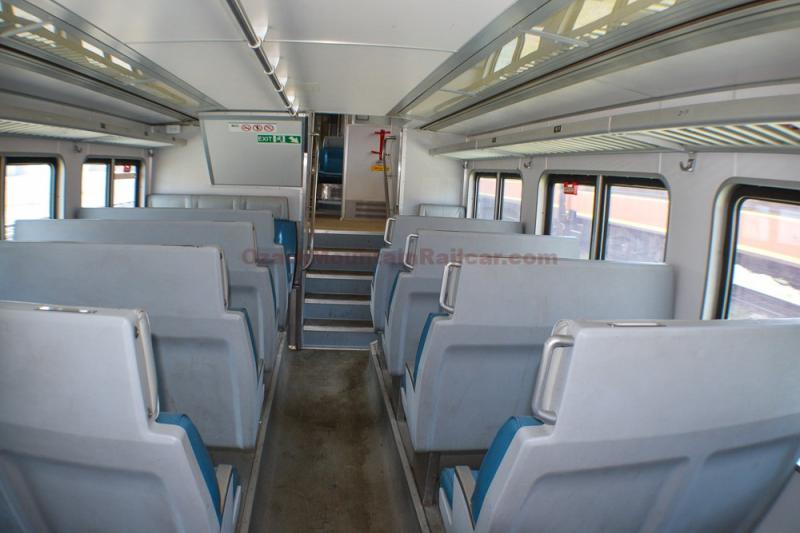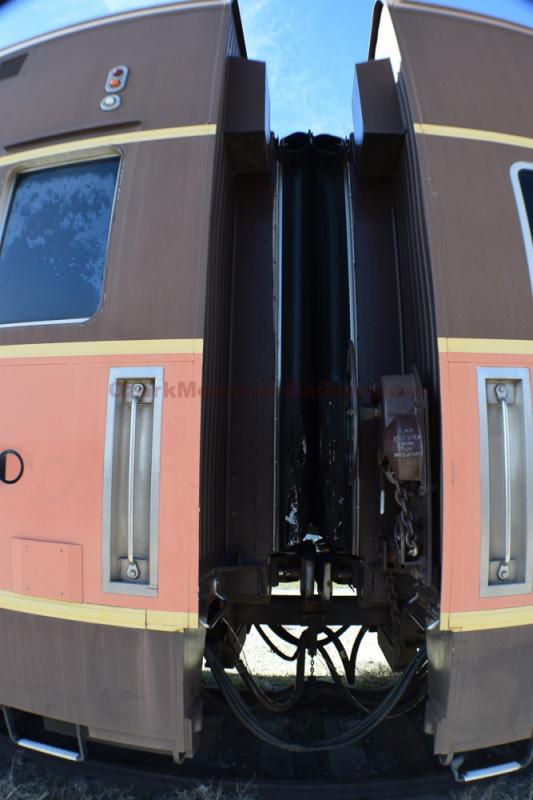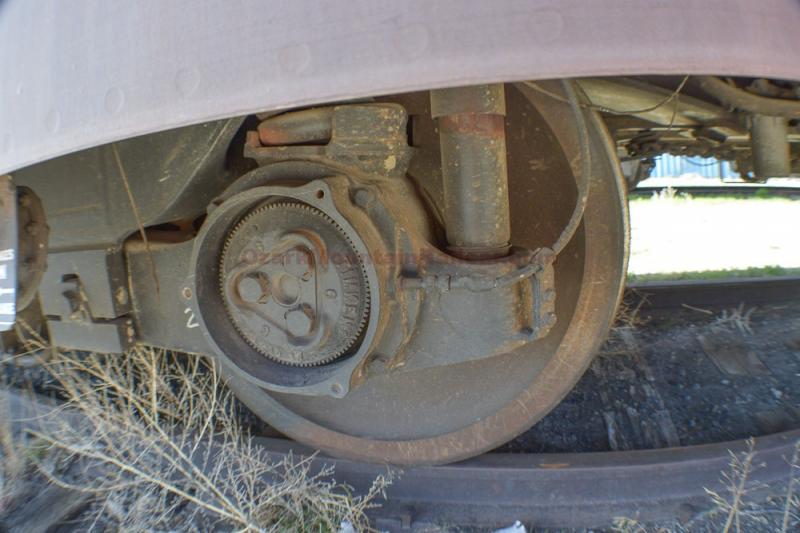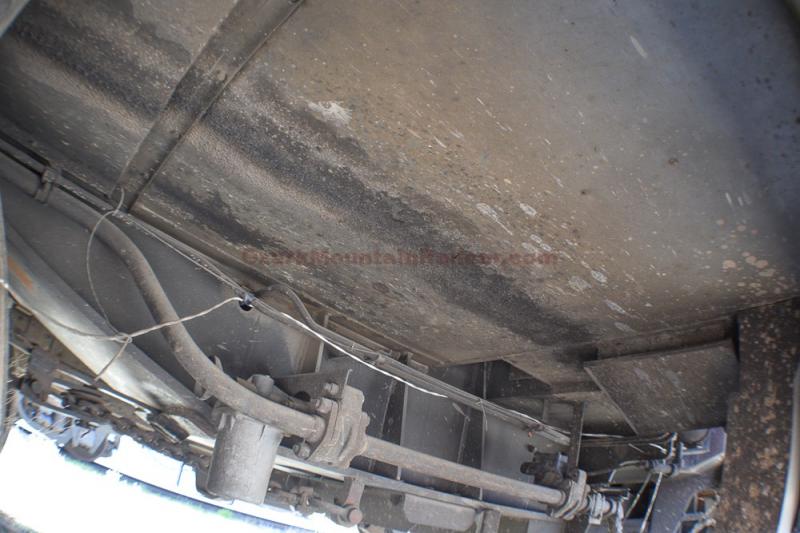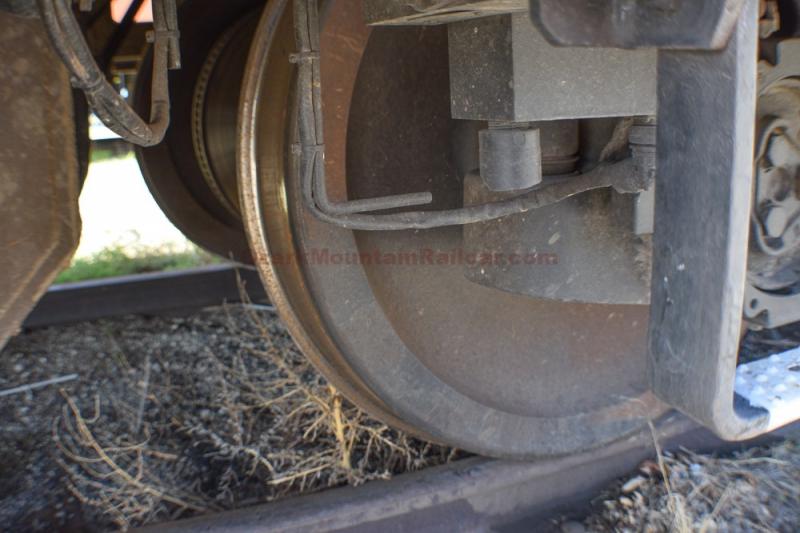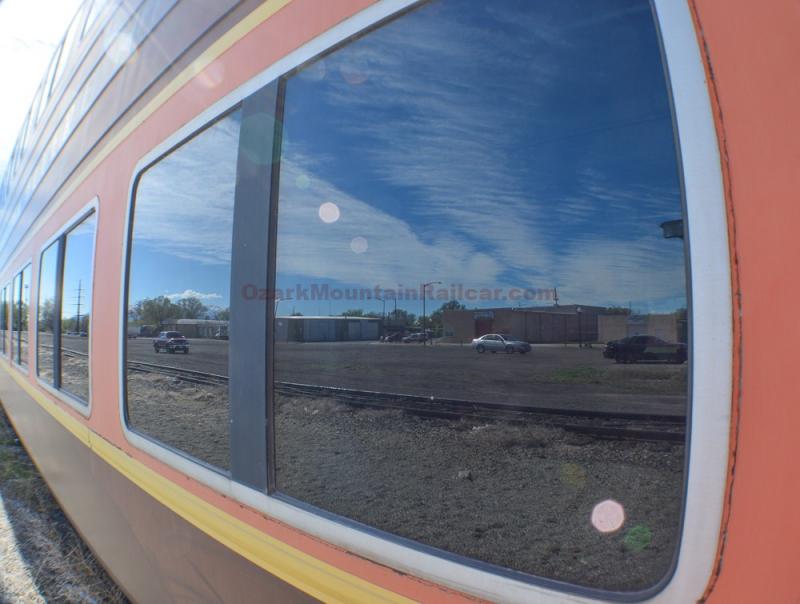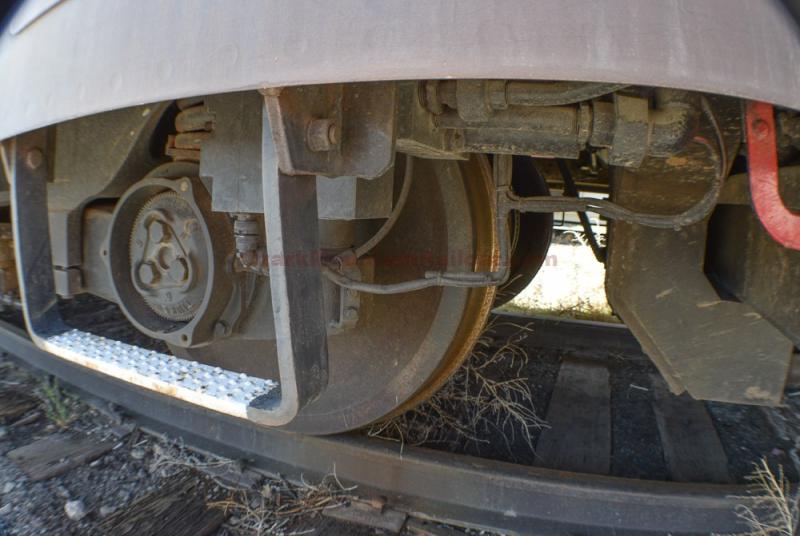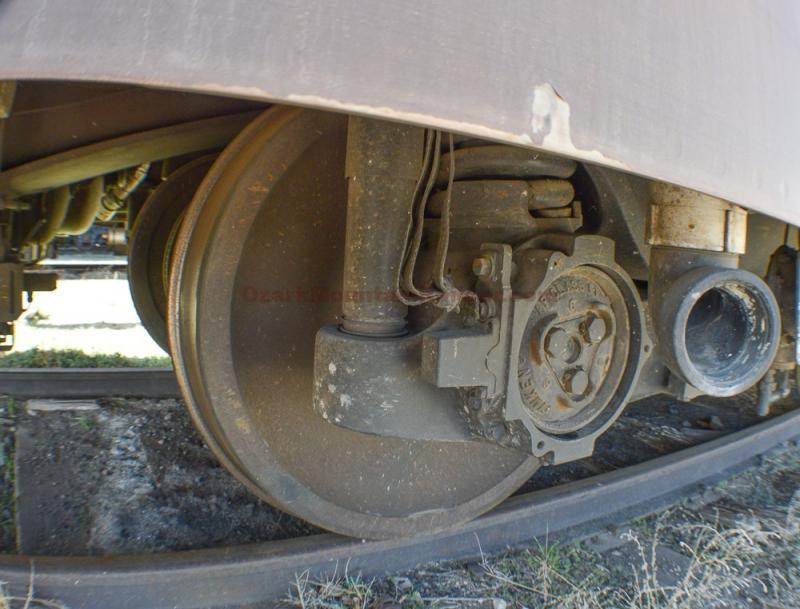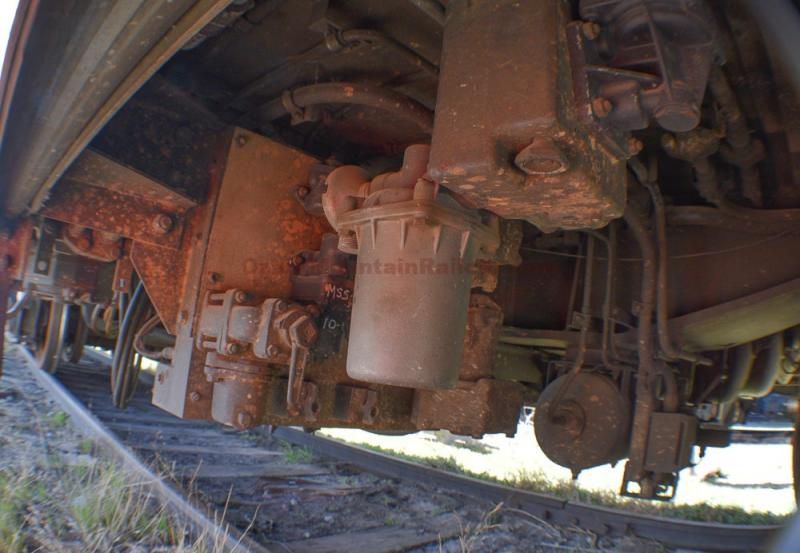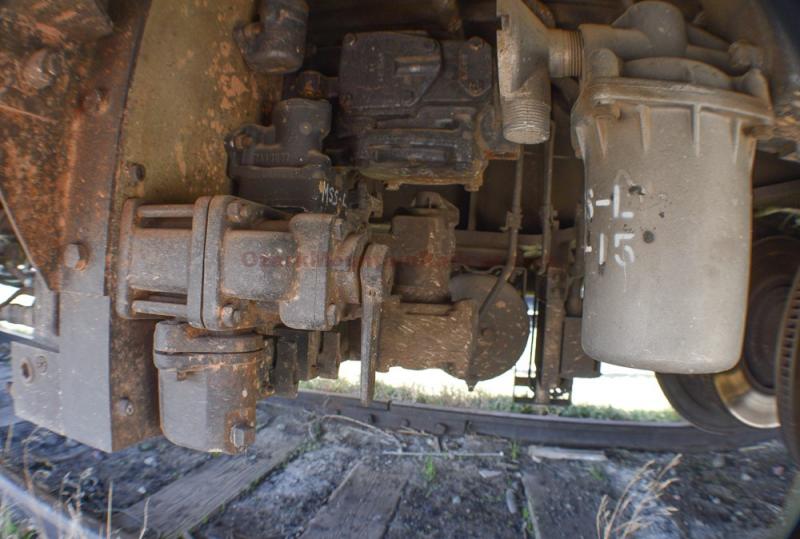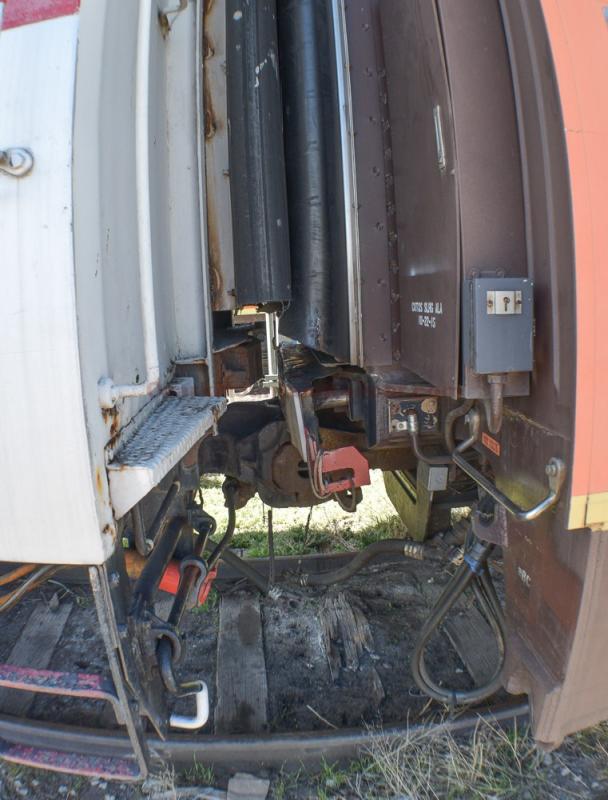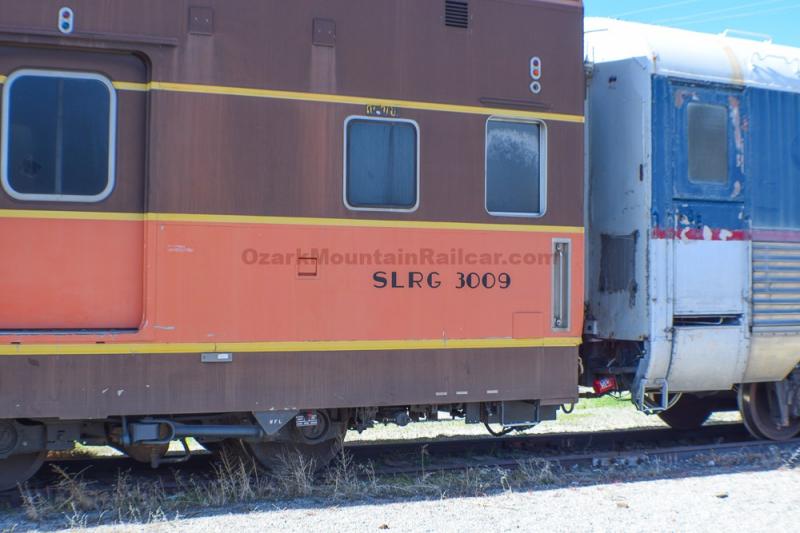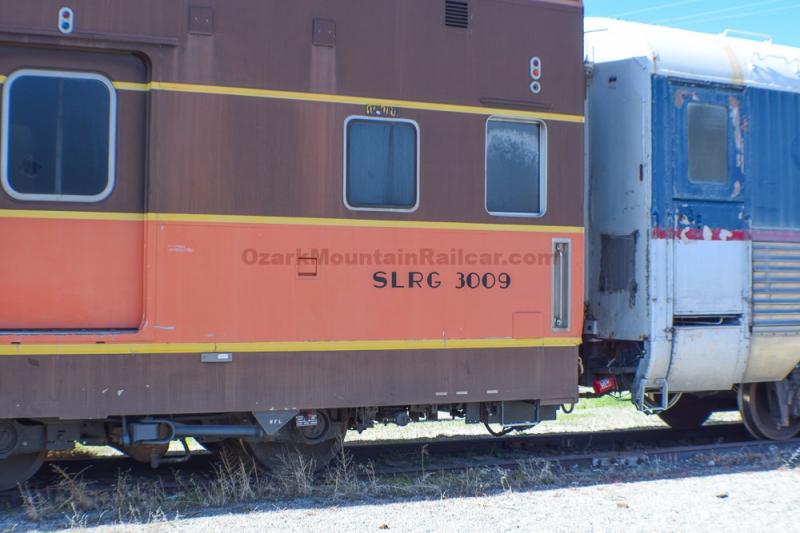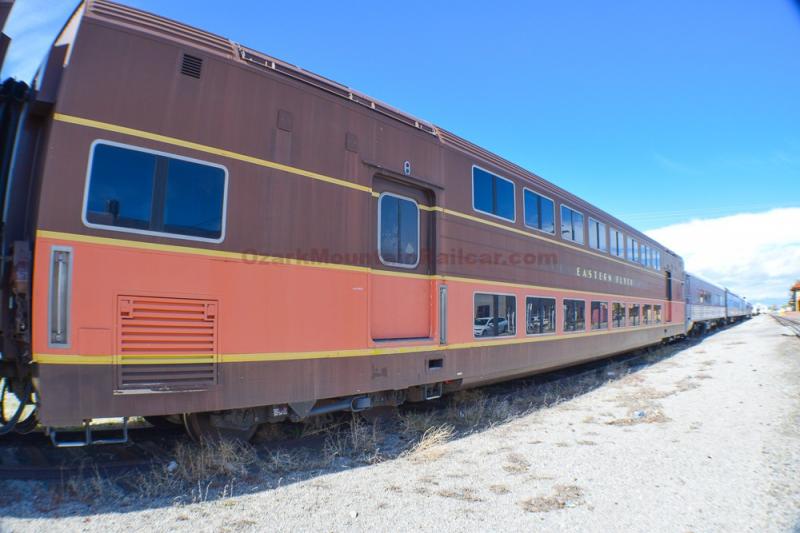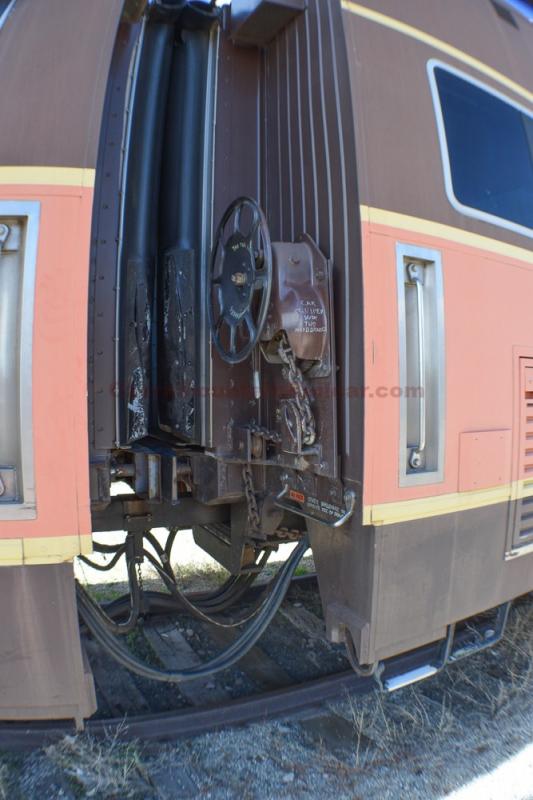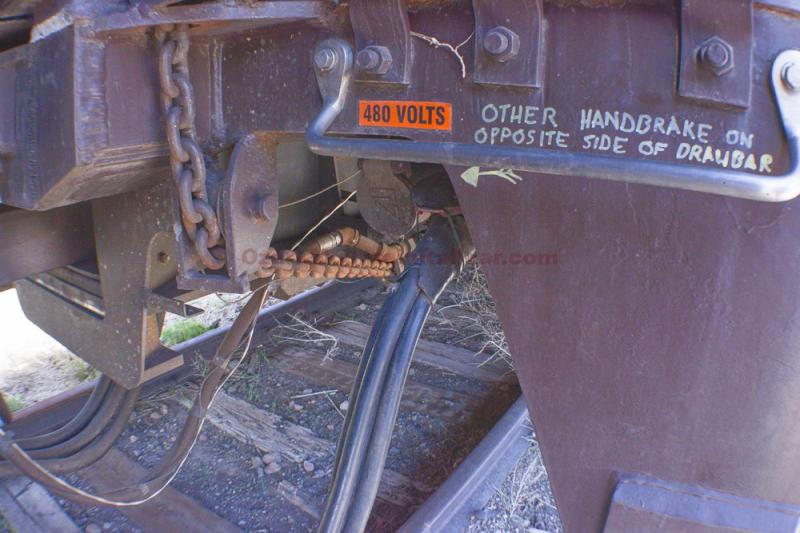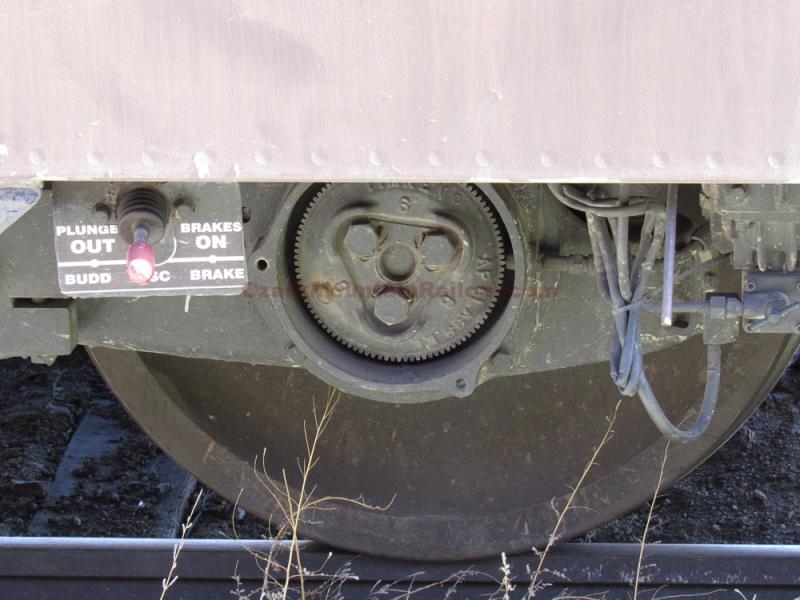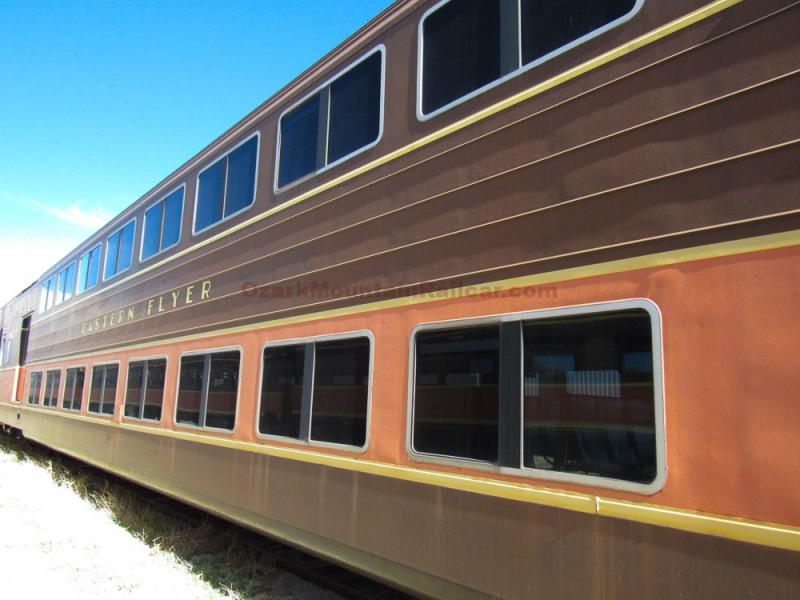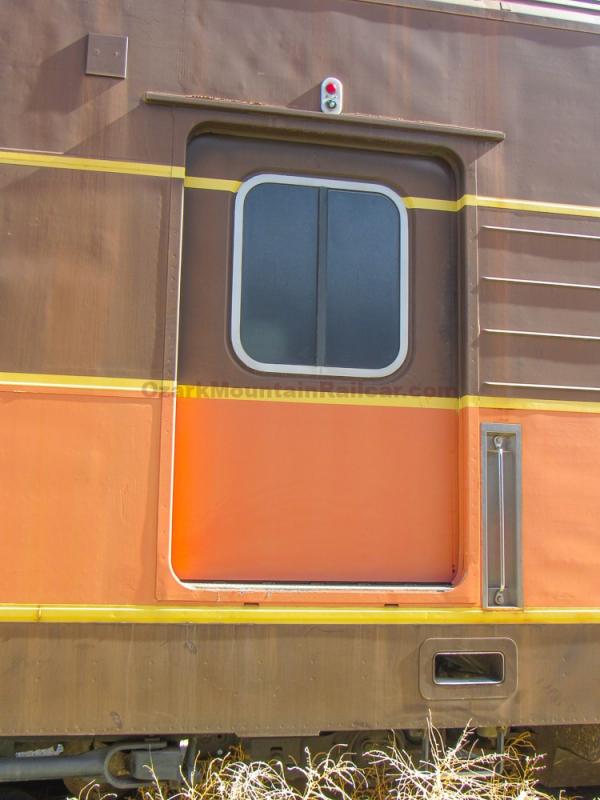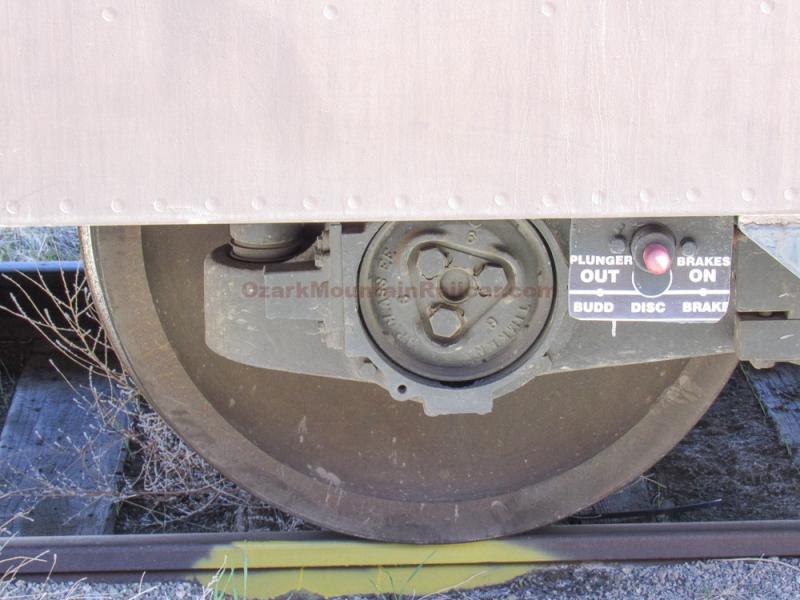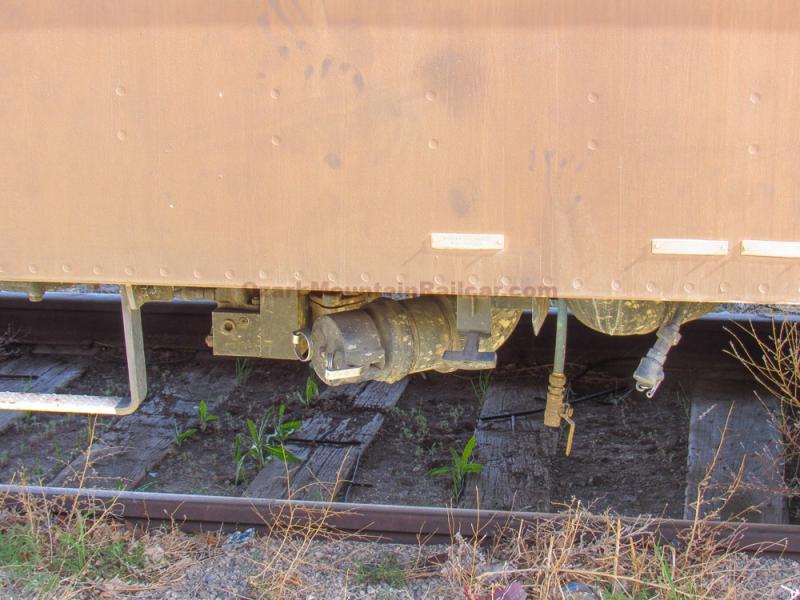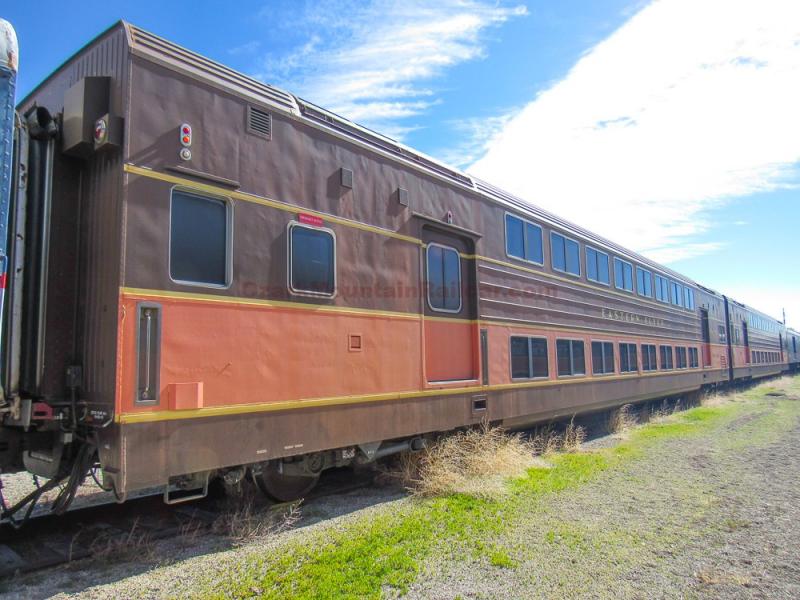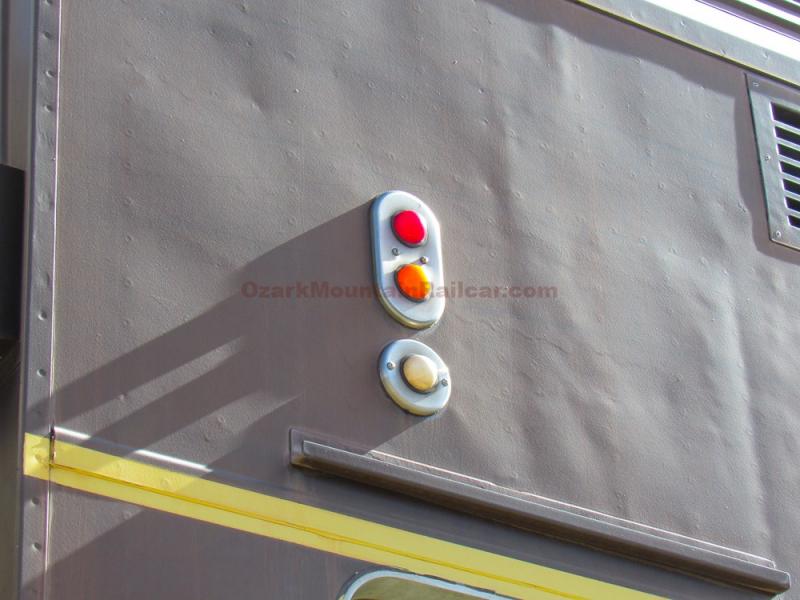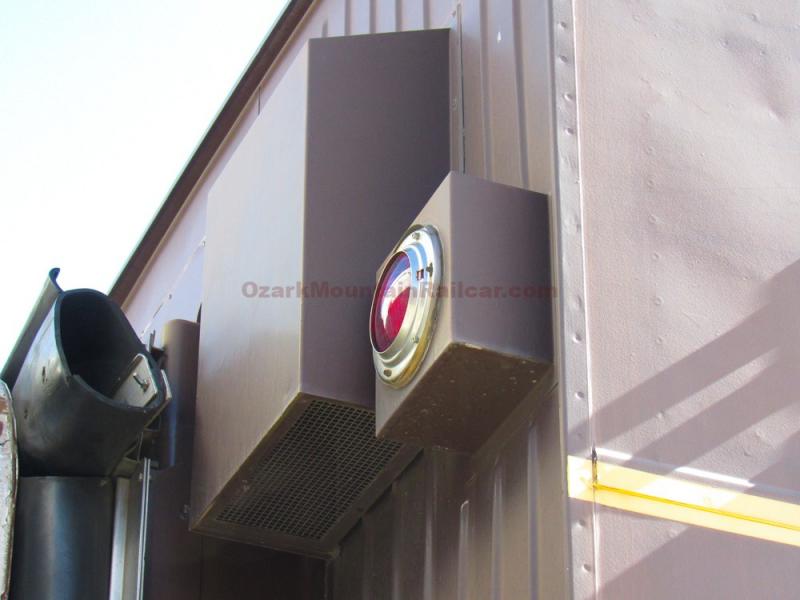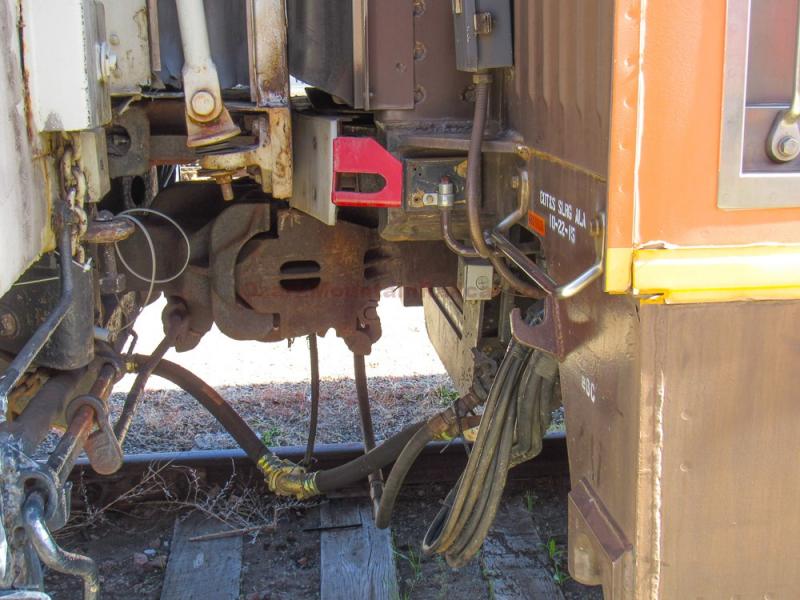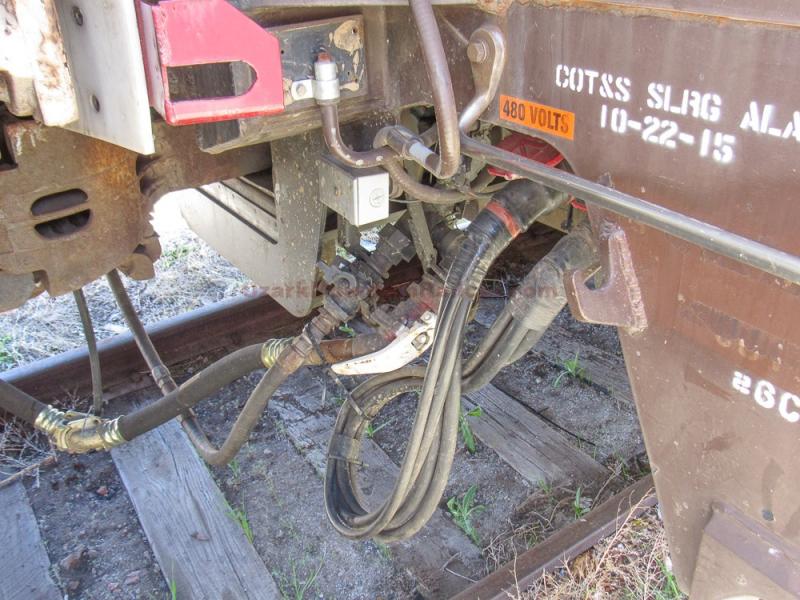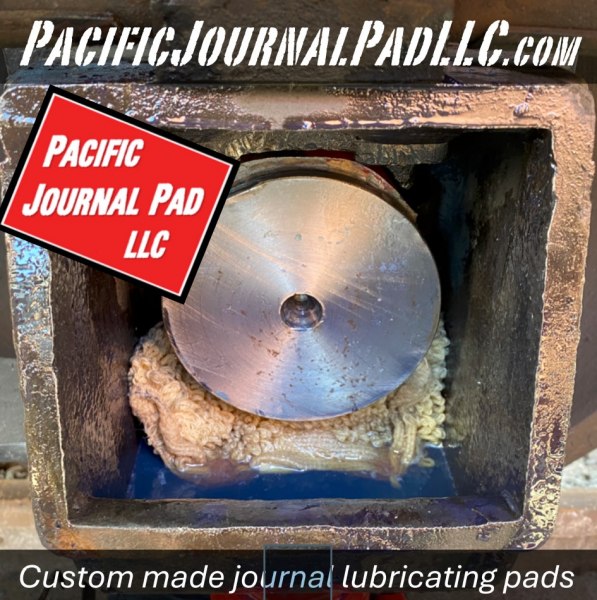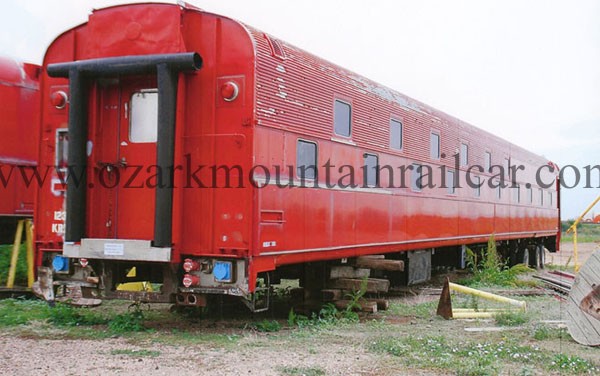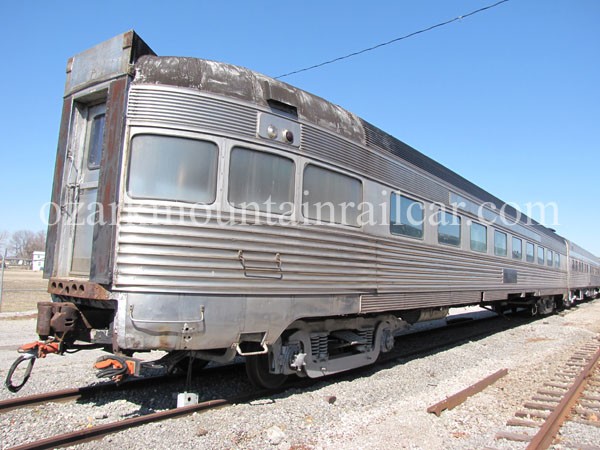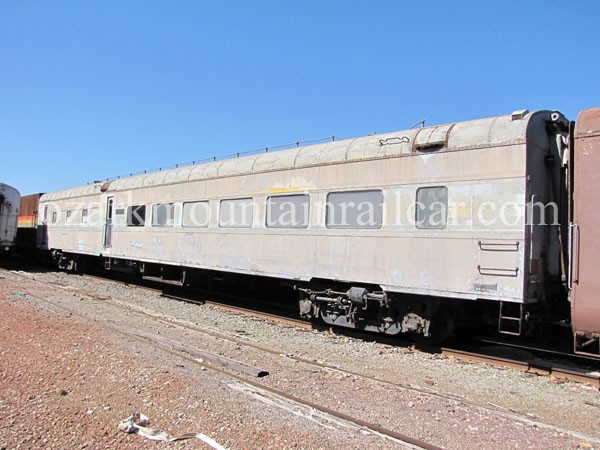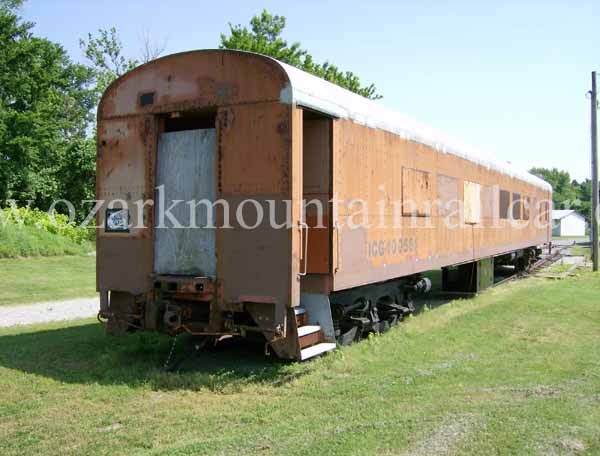These cars are sold free and clear of all liens and encumbrances and is currently owned by a private lender.
Contact us for lease rates, please provide location, length of lease, how many days a month item will be used, total mileage per month.
Built in 1990 by the Tokyu Car Corporation for the Long Island Railroad as stainless bi-level commuter cars. Retired by the Long Island Railroad in 1998 and sold into private ownership in 1999. Most operating passenger cars in the Heritage Rail industry are approaching 70-90 years of service. By industry norms a car that has had a service life of less than 30 years is considered a new car. Each car set (2 cars) are semi permanently coupled together with a fixed drawbar which provides a total capacity of 360 passenger per car set. All cars have full HEP, heat & A/C, the one drawback is that the cars have platform level doors. This can be easily addressed with using portable event stairs. Since the cars are under 40 years of age, Amtrak certification could be simplified but would need Amtrak approval.
Some of the mechanical details include: Stainless steel construction, H couplers (cars were built with transit couplers, converted to H couplers) , full Head End Power, floor and OH heat, air conditioning, electric decelostats, rotating end cap bearings, serviceable wheels, rubber diaphragms, pa system, 480v/120v electrical system, emergency windows, emergency lights, 3/2 seating, restroom, vestibule doors at each end of each car which enables rapid loading and unloading, ADA accessible seating. The cars are equipped with 26-C brake valves, see parts list in listing documents
Q-How much does it cost to ship a passenger car by truck?
The costs involved with shipping a passenger car will vary a bit depending on the type of car and the equipment the service provider has and of course the distance it must travel. Normally a passenger car will weigh between 60-85 ton ea., will be approx. 85' long ea., ten feet wide and approx ea. 13-15' high ea. sitting on it's trucks (wheel assemblies). The safest method of shipping will be to lift the car off it's trucks and set one end of the car on the back of a semi truck and the other end of the car on a set of road dollies. So basically the car would be pulled down the highway like a trailer. The trucking company will need to make a second trip to pick up the trucks and deliver them to the site before the truck arrives with the car body. It is recommended that the car be set on a short piece of track since that is how the car structure was designed. You normally can find used railroad ties at landscaping companies and for rail we suggest contacting a local railroad museum, shortline railroad or scrap yard. On an average you can expect to spend a minimum of $10,000-$15,000+. The total price will depend on the trucking company and crane companies in the area. Shipping is the responsibility of the buyer and we are more than happy to discuss the project with any service provider so that fully understand the process.
How much does it cost to ship a passenger car by rail?
If a passenger car is capable of being shipped by rail, that does not mean that is the easiest or cheaper method of transport. If the final destination is off live rail then shipping by truck (see above paragraph) will be the best option. This way you know when it will show up and an in what condition it will be in. To ship a car by rail it will need to meet all mechanical and safety standards of the Federal Railroad Administration and the interchanging railroad. In most cases we can recommend a trusted independent inspector who can do an evaluation of the car for you and perform what work needs to be done. On average the car will need to have the air brakes recertified (approx. $5,000-$8,000). And it will need to have UMLER Tags and reporting marks installed on the side of the car (approx. $250.00 - $500.00). If the car is ready to be shipped in freight service (like a box car in a train) you will need to open an account with all railroads involved in the move and get a tariff for moving a passenger on it's own wheels (we can recommend several trusted contractors who can make all the shipping arrangements for you). The railroads charge between $5.00- $15.00 per mile, often the railroads don't go directly from point A to point B so you will need to pay the total amount of mileage the car will travel to get to the final destination. It is recommend that you have the car insured before shipment ( we can recommend several carriers who specialize insuring railroad equipment).
How much does it cost to ship a car by railroad flat car?
Occasionally a passenger car can't be shipped by rail due to it's physical attributes or shipping by truck is not the best option. You can ship a car loaded on a flat car, it will need to be secured to the flat car per American Association of Railroads tie down specifications. The tariff often can be cheaper than moving a car on it's own wheels, but you will still need to pay crane costs at origin and destination and you will need to have an active siding for the car to be delivered to. Shipping by flatcar will start at approximately $10,000 and will be based on origin and destination crane cost and the rail tariff and any car rental costs.
